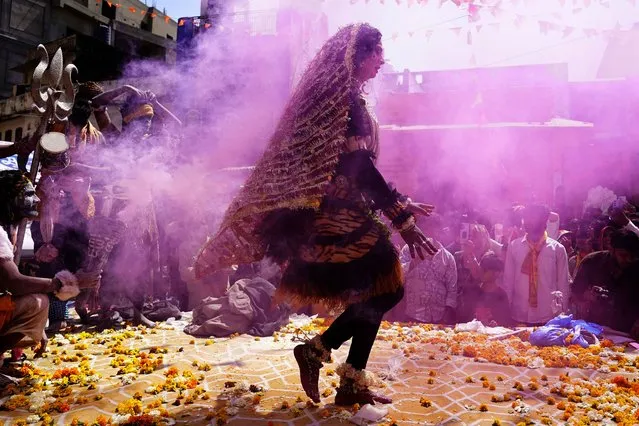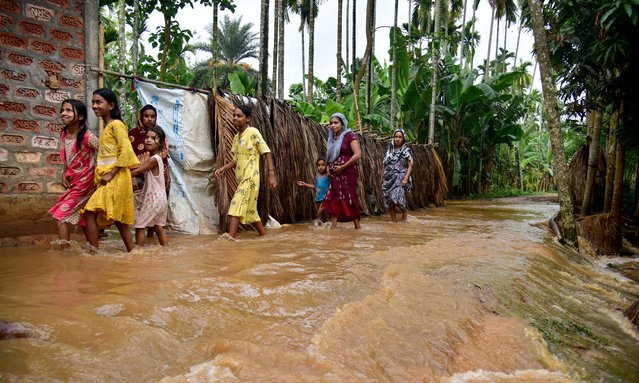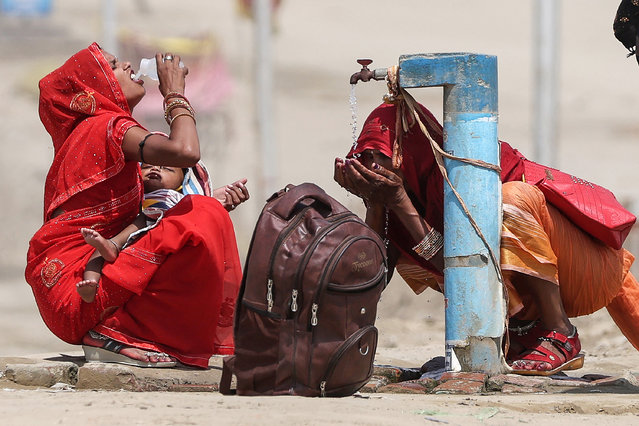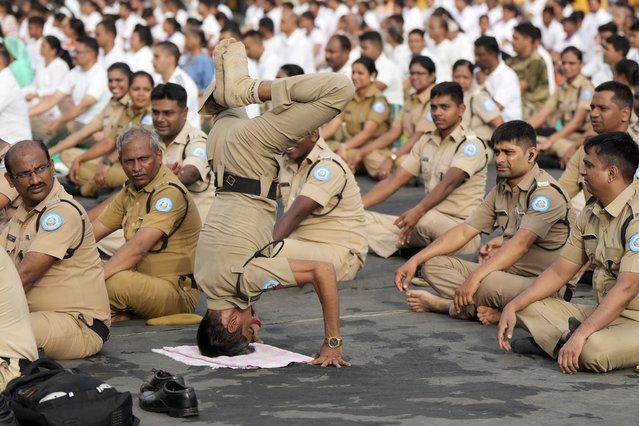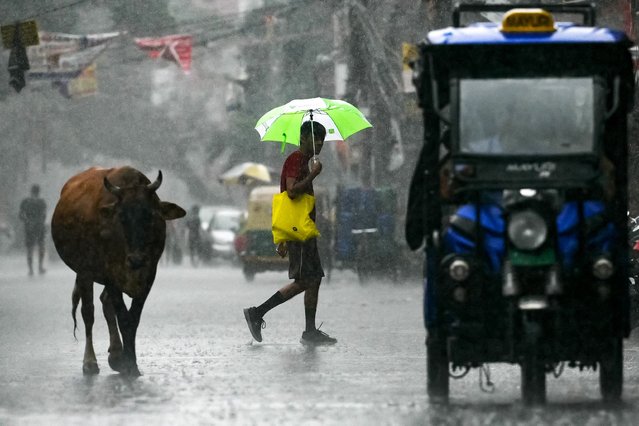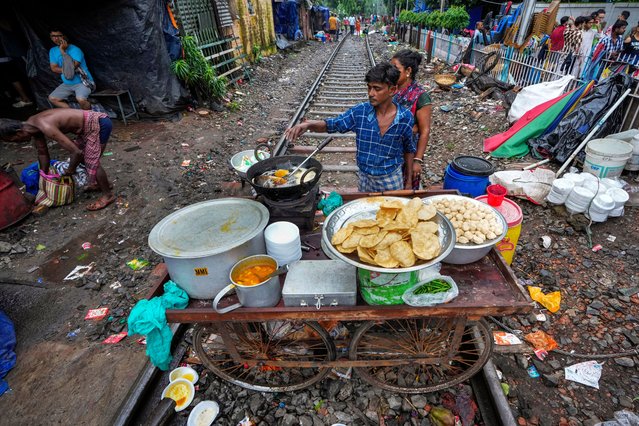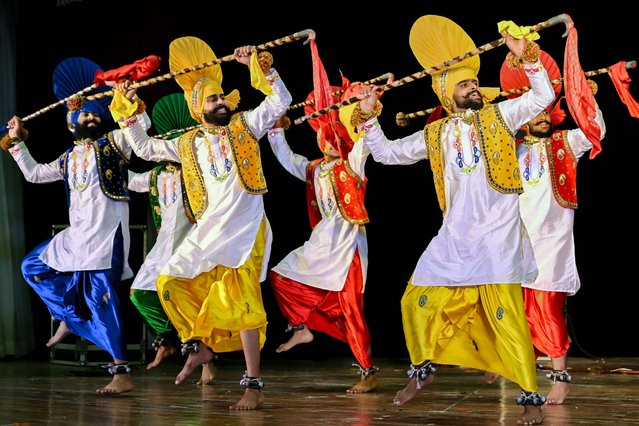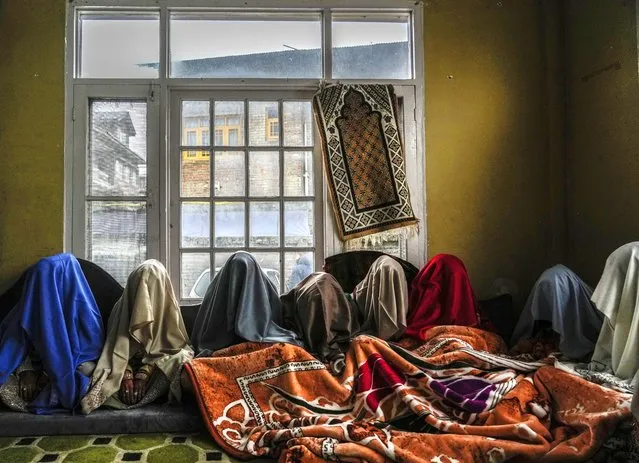
Kashmiri Muslim brides sit during a mass marriage of 30 couples in Srinagar, Indian controlled Kashmir, Wednesday, February 21, 2024. Mass weddings in India are organized by social organizations primarily to help economically weaker families who cannot afford the high ceremony costs as well as the customary dowry and expensive gifts that are still prevalent in many communities. (Photo by Mukhtar Khan/AP Photo)
27 Feb 2024 07:08:00,post received
0 comments

